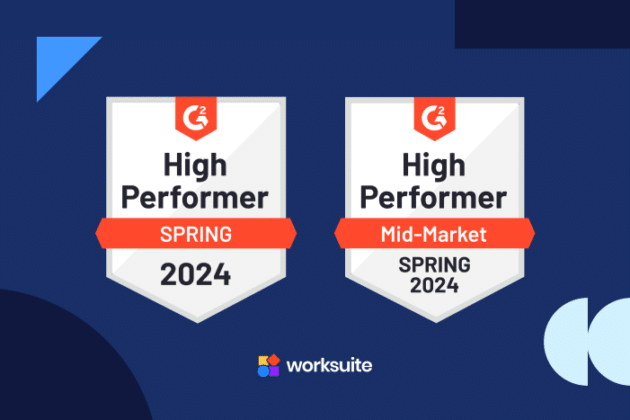
13 Affordable Health Insurance Options For Freelancers


Being an employee in most companies comes with the added benefits of health insurance coverage. But once employees leave the safety of their 9 to 5 job to start an exciting new life as an independent contractor, this peace of mind comes to an end.
For this reason, independent contractors’ rates are often higher than that of employees—as they need to factor in this essential part of running their business, while taking care of all the other moving parts of being a sole business owner. If they’re the breadwinners of their household, or have children and dependents to take care of, they need to protect their income with insurance in the event they become sick or unable to work for any reason.
In many countries and states, it’s mandatory for freelancers to pay a percentage contribution from their realized earnings into a health insurance scheme. But if that isn’t the case – independent contractors need to look at other options to cover themselves and their business.
This can be a frightening thought as insurance premiums continue to increase. But there are many channels for contractors to find affordable health coverage these days (especially in the United States).
What’s the average cost for health insurance for freelancers in the USA and Europe?
United States
The average cost for health insurance coverage for freelancers is $500 per month ($6,000 per year). If contractors qualify for a tax subsidy, this can be significantly reduced to $200 a month.
Location will also determine how much contractors pay for their insurance plans. For example, a state like New York might charge around $700 a month, while Colorado freelancers might only pay $350 a month.
Europe
The cost of health insurance for freelancers varies widely through the European Union.
Some countries require their self-employed business owners to make compulsory contributions from their earnings into a national health scheme—while other countries like Italy offer free or low-cost healthcare to all residents.
Here’s a guide to the price of health insurance in a few European countries:
- Austria – 220€ per month
- Germany – 350€ per month for private health insurance if you are self-employed. Public health insurance for freelancers can cost up to 925€. So for young and healthy workers, private insurance makes more sense financially.
- Netherlands – health insurance policies run between 385€ and 885€ a year
- Spain – 100€ to 200€ per month. Some of the major health insurance companies offer plans as low as 50€ if specific qualifying factors are met.
Affordable options for healthcare for freelancers in the United States & Europe
Get added to a family member’s health insurance plan
For freelancers with an employed partner, or for young freelancers who are still able to be added to their parents’ insurance—getting added to an existing plan is one of the easiest and most affordable options for health coverage.
Depending on the existing plan, contractors can often be added with no extra charge, or for a small additional premium.
Under the Affordable Care Act in the USA, healthcare insurers must offer coverage for anyone under 26, making this a great option for young freelancers to piggyback on their parent’s health insurance plans.
In rare cases, the cost of being added to a plan can be more expensive for freelancers than signing up for their own plan, so it’s important to check the fine print.
Get private insurance coverage
For freelancers who earn a good living, and who therefore may not be qualified to get subsidized healthcare in their country, it makes sense to get private health insurance.
Depending on location, this can be seriously expensive, but the good news is that this is a tax deductible expense. And despite the cost, it’s a better option than suddenly needing medical care, and not being able to access it.
Private insurance coverage always has tiered plans, so freelancers only need to pay for what they sign up for. So whether they want to tick the boxes for routine medical care, surgery, dental, etc. these will all factor into the total cost.
Even the most basic plans may have an eye-watering premium amount if a freelancer needs to use the coverage they have purchased. But again, it’s important to shop around local insurance companies, and make sure all fine print has been read.
Contact local and professional associations
Many towns and associations also offer health insurance for freelancers and small business owners. These can be found through business associations, or local chambers (e.g. Chamber of Commerce).
These local associations have group coverage plans which are very affordable, and are substantially cheaper than private insurance.
Another option is for freelancers to start their own local group of self-employed workers, and apply for group coverage together. Most insurance companies let groups apply independently or through their broker to arrange discounted group plans.
Ask the Freelancer’s Union (USA)
For freelancers based in the USA, the Freelancer’s Union offers health insurance plans across many states including:
- New York
- Colorado
- California,
- Florida
- New Jersey
- Texas
This union supports 56.7 million freelancers in the USA, and their health plans give members benefits like general health, dental, disability, liability, vision, and term life insurance.
Affordable Care Act (USA)
Also known as the ACA, PPACA, or simply “Obamacare”, the ACA has created a means of affordable healthcare options for millions of residents in the USA, including freelancers.
Self-employed solopreneurs can apply online to see if they’re eligible, and to find out what type of benefits they can receive under the ACA scheme.
While the healthcare benefits may not be as extensive as paying for private insurance, it will cover basic care for freelancers, and help with any emergency care.
The COBRA Act (USA)
COBRA (aka the Consolidated Omnibus Budget Reconciliation Act) is a regulation passed in 1986. It ensures that people who leave a company where they were covered by a healthcare policy are entitled to an extra 18 months of coverage after they leave.
This Act gives freelancers a smooth means to transition from employment to self-employment, without the stress of immediately needing to find another healthcare option.
Small business insurance
As small business owners, freelancers can often qualify for lower cost plans for themselves, their families, and their employees, if they take out specific small business insurance.
To take this insurance route, freelancers need to prove they are a registered business in the country or state they live in.
Rules will vary between insurance companies as to who qualifies for this type of insurance. Often the insurers require a freelancer to have at least one employee under a small business plan.
PEO options (USA)
Depending on the state they reside in, freelancers can often get insurance through a PEO (professional employer organization)—for example, TriNet, JustWorks and Insperity.
PEO plans may also come with extra tax benefits, so it’s a worthwhile option for many solopreneurs.
Digital nomad health insurance
For traveling freelancers and remote workers, health insurance can get a little tricky when using traditional insurance companies.
But with the remote work trend in full swing, there are now companies that cater exclusively for digital nomads and their health and medical needs.
These include companies like:
These companies typically let nomadic freelancers pay month by month for their plans and cancel at any time, so they’re not locked into complicated annual contracts.
Disability insurance
As an alternative to health insurance, there is also the option of taking out disability insurance. This type of policy pays out when freelancers are sick, injured, and unable to work. It ensures part of their income is covered until they are back on their feet.
Most insurers offer this specific type of plan as long as freelancers can prove their income over the past 1 to 3 years.
Other alternatives to health insurance for freelancers
Flat fee doctors
In many countries there is a “flat fee” scheme offered, which covers doctors visits. This is especially useful for freelancers who need frequent checkups and medical care.
For a low monthly fee, individuals can see their doctor as many times as they need to. While this doesn’t take the cost of pharmacies, hospital visits, or specialist treatment into account, it can be a huge cost saving to get basic healthcare needs attended to.
Faith-based healthcare group insurance
For freelancers in religious denominations, there is always the option to see if their local branch or church offers a pooled healthcare scheme.
In this situation, everyone in the group pays a small monthly premium based on their individual earnings, and those who need it can apply to get their medical expenses covered out of the total pool.
For Christian freelancers based in the USA, Samaritan Ministries is a good place to start.
Paying in cash
For freelancers that earn enough, or don’t want to hand over their money every month to an insurance company—there’s always the old fashioned option of paying cash for healthcare services.
Healthcare providers often offer significant discounts for cash payments, and self-employed individuals might save as much as 30% on their care when they pay with this method.
This option is recommended only for freelancers who are savvy with their money and are committed to opening a bank account to put aside monthly amounts into medical-related savings.
In the USA, freelancers can contribute to the HSA, which lets them set aside untaxed dollars in a special savings account to pay for qualifying medical expenses and deductibles.
Is health insurance for freelancers tax deductible?
While the monthly payments for health insurance can seem overwhelming as a freelancer, the good news is that premiums for dental, medical, and other coverage is often tax deductible—for contractors, their partners, and dependents.
Self-employment can be tricky to navigate when it comes to health insurance, as there are so many options to consider. Many freelancers combine some of the options we mentioned above to try and keep their healthcare costs down as much as possible.
Health insurance for freelancers should be a non-negotiable part of running their business, so if you’re hiring contractors—ensure that you’re paying them a fair market rate to accommodate their wellbeing, and safeguard their ability to do their best work for you.






